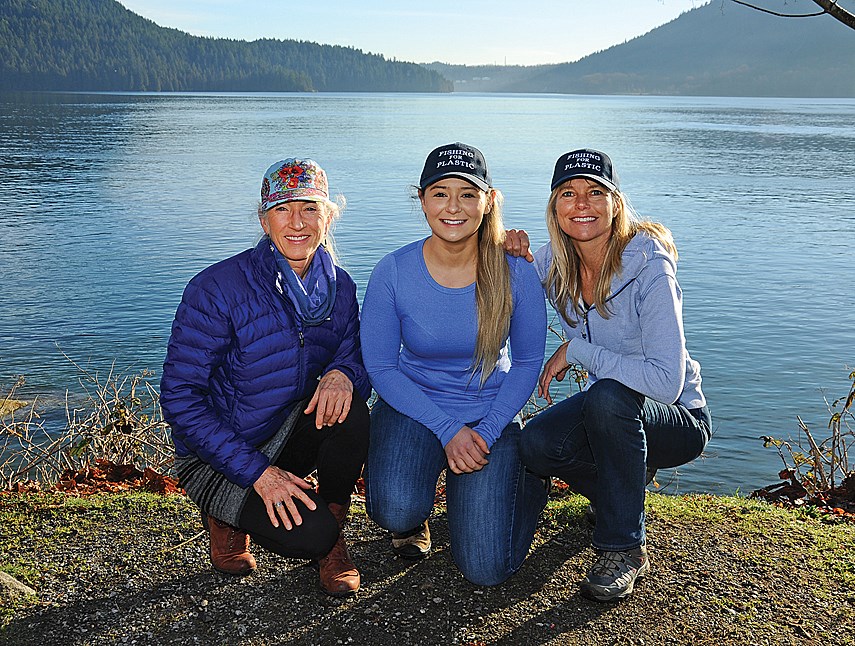Plastic is the catch of the day.
On May 25, Lions Gate Hospital surgical assistant Angela Burns is helping organize the first plastic fishing derby in the Bahamas.
The event, which includes a $500 prize for heaviest catch, is part of a larger effort to turn back the rising tide of plastic pollution in the region, according to Burns.
“The beaches are spectacular,” Burns says. “Except there’s a big coating of garbage on many of them.”
A solution, according to Burns, is fishing.
For years, Burns watched waves of water bottles, balloons, buckets, octopus traps and even a car bumper wash ashore on the Bahamas while local fishermen trained their energy and hooks on lionfish.
With their venomous spines and expanding stomachs, the invasive aquarium escapees can decimate a reef in five weeks, according to a 2008 study. In order to cull the predator, residents have organized lionfish derbies over the past decade,
Burns says.
“This is the first year they weren’t going to have it so we’re kind of filling that place,” she says. “We’re promoting plastic as the new invasive species.”
Of the approximately 6,300 metric tons of plastic waste generated since the invention of the polymer, approximately 21 per cent has been recycled or incinerated, leaving the rest to pile up in landfills and scatter across the environment, according to a 2017 study.
And while Burns may not be able to address the problem’s root, she’s doing what she can with the fruit. Following the derby, Burns is planning to use $9,000 – money raised at Feb. 2 fundraiser at The View on Lonsdale – to make fishing for plastic a sustainable side gig for Bahamians.
Fishing for Plastic, a non-profit founded by Burns and Bill Atherholt, is slated to pay 50 cents for every pound of plastic harvested, she says. That means the money raised in North Vancouver will help haul 18,000 pounds of plastic off Bahamian beaches and into the landfill, Burns notes.
There’s no recycling option in the Bahamas yet but Burns says she’s hopeful the plastic can be packed into eco-bricks or melted down and moulded into new products.
While Burns is based in Marsh Harbour, she’s hoping to turn the cleanup into an international event.
“We’re trying to get as many countries as possible involved,” she says, noting volunteers in Canada, the United Stated, India and the United Kingdom.
Some of the most enthusiastic plastic salvagers are children, according to Burns.
“Kids are amazingly interested in this,” she says. “Many of them who are surrounded by these absolutely pristine beautiful waters and gorgeous reefs, have never seen the reef.”
For more information visit fishingforplastic.com



